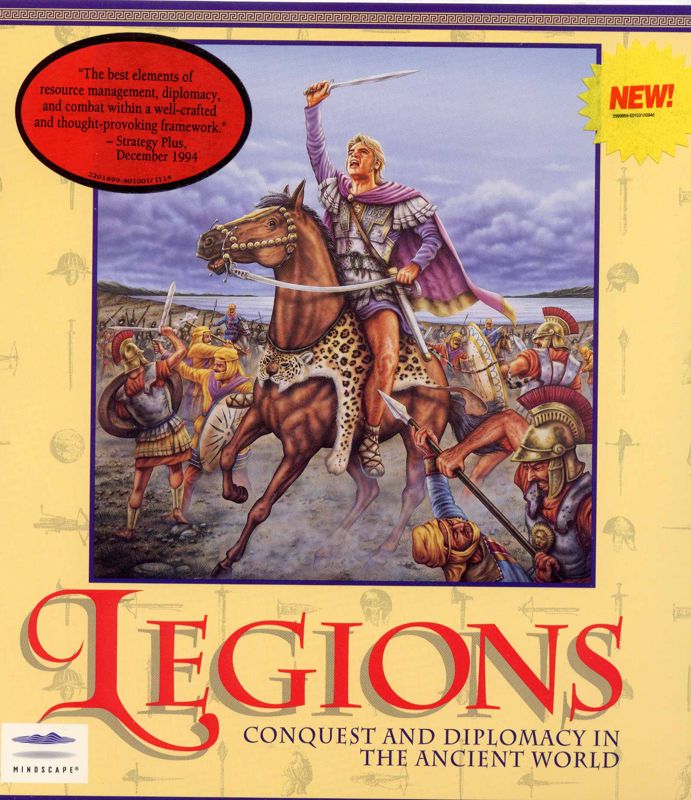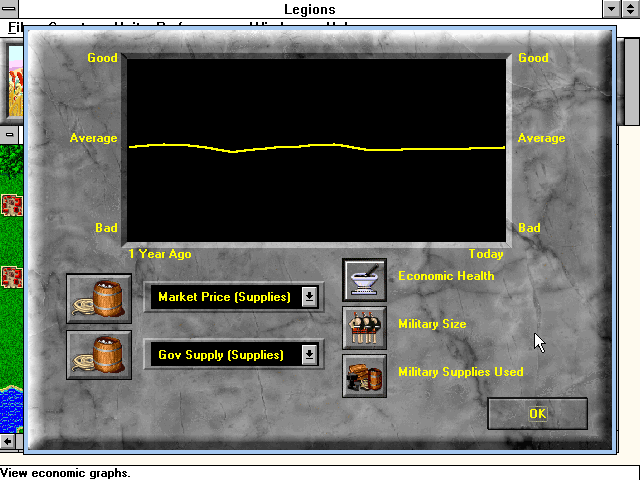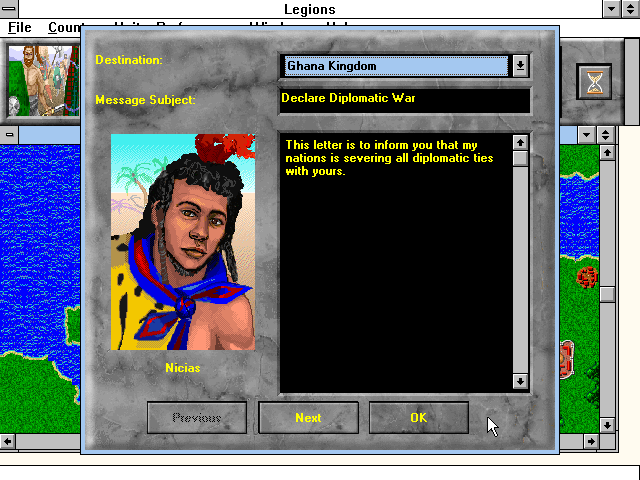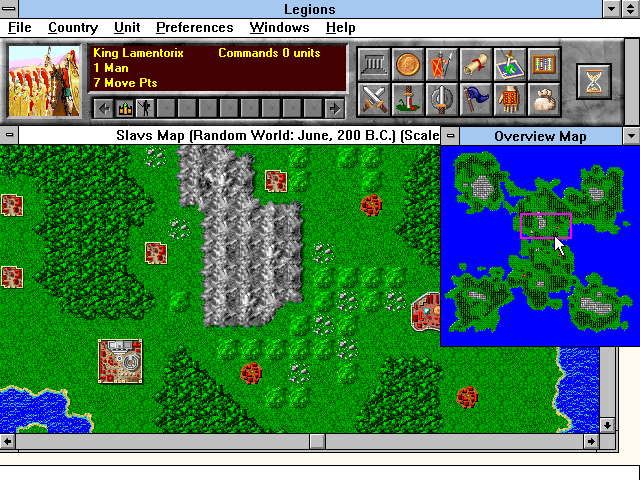Retro Replay Review
Gameplay
Legions delivers a turn-based strategy experience deeply rooted in economics, diplomacy, and warfare. From the moment you begin, you’ll find yourself juggling resource management—grain, gold, manpower—while navigating the political landscape of the ancient and early medieval world. Unlike broader 4X titles, Legions narrows its lens to give you a more focused gameplay loop: expand your territory, negotiate alliances, and wage calculated wars. Each decision carries weight, as overextension can quickly lead to revolts or financial collapse.
(HEY YOU!! We hope you enjoy! We try not to run ads. So basically, this is a very expensive hobby running this site. Please consider joining us for updates, forums, and more. Network w/ us to make some cash or friends while retro gaming, and you can win some free retro games for posting. Okay, carry on 👍)
The diplomacy system in Legions is refreshingly nuanced. Treaties, tributes, and trade agreements are all handled through clear, bite-sized menus that still manage to capture the complexities of ancient politics. You’ll find yourself weighing the benefits of forging a defensive pact with your neighbor against the risk that they may turn on you in the next age. AI opponents behave more like historic rivals than random adversaries, often honoring alliances when it suits them and betraying you when they see an opening.
Combat in Legions is turn-based yet surprisingly dynamic. Units represent real historical formations—legionaries, cavalry, archers, tribal warriors—each with strengths and vulnerabilities. Terrain plays a critical role: holding a hill grants defensive bonuses, while marching through mountains slows your forces to a crawl. The narrow focus of the game allows for deep tactical choices in each skirmish, from setting ambushes to coordinating multi-front assaults. Victories feel earned, thanks to the game’s attentive design and balance.
Graphics
Visually, Legions opts for a functional aesthetic over flashy 3D models. The game map is rendered in a clean 2D style, with region borders, resource icons, and unit counters all easy to distinguish at a glance. This clarity serves the game well—when you’re managing multiple fronts or assessing an enemy’s diplomatic overtures, you won’t get lost in visual clutter. While purists of high-end graphics may find it modest, the minimalist art direction underscores the strategic focus.
Unit and building icons are evocative without being overly ornate. Each faction’s banners and symbols draw from authentic historical designs, reflecting the developer’s commitment to research. Seeing your Roman eagle standard or Germanic wolf emblem on the battlefield adds an immersive touch. The UI, though dense with information, uses consistent iconography and tooltips to guide new players through complex menus.
Maps portray territories in stylized earthy tones, with seasonal changes subtly altering the palette to reflect winter snows or the bloom of spring. While there are no cinematic animations for battles, brief tactical overlays—arrows showing planned movements, colored highlights for zones of control—keep the action comprehensible. In a genre where visibility of critical data is paramount, Legions delivers exactly what players need.
Story
Legions isn’t a narrative-driven title in the traditional sense, but it shines through emergent storytelling. Your campaigns unfold across historical backdrops: the rise of Rome, the migrations of barbarian tribes, the fragmentation of empires. Each playthrough crafts its own story based on your alliances, betrayals, and conquests. You might start as a Carthaginian vassal and end up founding a new kingdom at the edge of Gaul—every choice weaves your unique saga.
The game includes several scenario-based challenges that recreate pivotal moments: the Punic Wars, the Celtic incursions, the Byzantine-Sassanid conflicts. These scenarios come with preset conditions and victory objectives, offering bite-sized narratives for those who want to experience history’s turning points. While there’s no voiced dialogue or cutscenes, the strategic context and historically accurate events provide ample drama.
Immersion comes from reading the in-game encyclopedia entries, which are packed with historical insights. Conquering Egypt, for instance, unlocks details about Ptolemaic governance and Hellenistic culture, enriching your understanding of the era. This blend of mechanics and scholarship makes each campaign feel like a living history lesson, turning strategy fans into armchair historians.
Overall Experience
Legions strikes a compelling balance between depth and focus. Its narrower scope compared to sprawling 4X games means you spend less time on micromanagement and more time on meaningful strategic decisions. Whether you’re negotiating a trade deal, planning a siege, or navigating a diplomatic crisis, the game’s systems interlock seamlessly to keep you engaged for hours on end.
The learning curve can be steep, especially for newcomers to grand strategy. Early turns may feel overwhelming as you sort through economic reports, diplomatic requests, and troop deployments. However, the game’s tutorial scenarios and comprehensive tooltips ease you into its systems. Veteran strategy players will appreciate the rigor, while history buffs will revel in the authenticity of the design.
Replayability is high. Each faction plays differently, and randomized world maps ensure no two campaigns unfold the same way. Add in the scenario challenges and the modding community’s occasional historical tweaks, and you’ve got a game that rewards repeated forays into its ancient world. For those seeking a turn-based strategy experience grounded in real history, Legions is a must-have.
 Retro Replay Retro Replay gaming reviews, news, emulation, geek stuff and more!
Retro Replay Retro Replay gaming reviews, news, emulation, geek stuff and more!









Reviews
There are no reviews yet.